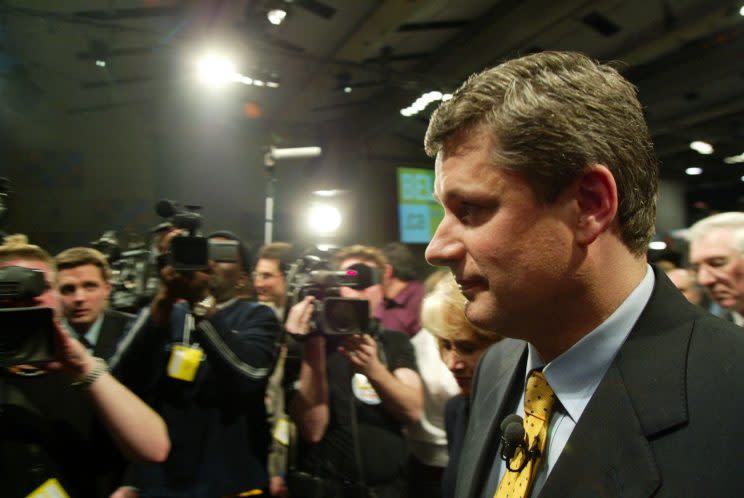'People became sharper': How Canadian reporters handled Trump-style press clampdowns

U.S. president-elect Donald Trump’s first press conference since his November election startled many.
It wasn’t because of any in-depth discussion of the accusations of conflict of interest, muddy constitutional waters, or Trump’s alleged ties to a scheming Russian regime.
It was because the incoming leader of the free world, one of the proudest democracies anywhere, was shouting down journalists.
A yelling match erupted between Trump and CNN reporter Jim Acosta when the journalist persisted after being refused a question. Trump degraded the reporter’s outlet, calling it “fake news,” and vowing not to answer any of his questions. In another bizarre scene, the president-elect deemed BuzzFeed, one of the outlets that published an unverified dossier of allegations about Russia blackmailing Trump, a “failing pile of garbage.”
While the scene felt extreme, some Canadian journalists related to the frustration of being denied the right to do their jobs.
Canadian press gallery, circa 2006. https://t.co/eERXzf4xIT
— Jennifer Ditchburn (@jenditchburn) January 11, 2017
We saw this behaviour in Toronto too – rival media highly reluctant to take a principled stand for a shunned outlet. https://t.co/72OBYS1pMB
— Daniel Dale (@ddale8) January 11, 2017
Late Toronto mayor Rob Ford refused to speak with journalists from the Toronto Star, where Daniel Dale works, who were the first in Canada to report on his crack use. Ford’s issues with the paper started when it published a report that the former high school football coach had assaulted one his players. (Ford staunchly denied the allegations.)
Former Prime Minister Stephen Harper was also notoriously hardline, freezing out the press and changing decades of convention by not revealing information about his schedule or caucus meetings, requiring reporters submit their names in advance if they wanted to ask questions, generally avoiding the press at all opportunities.
Jennifer Ditchburn, editor in chief at Policy Options magazine, has covered Parliament Hill for nearly two decades and spent a lot of time following Harper. The book she co-wrote, Harper Factor, examines, in part, the former prime minister’s impact on the media.
She says it’s important to recognize that the style of dealing with the media is part of a continuum with each newly-elected world leader, which Donald Trump appears to be pushing even further.
Former prime minister Jean Chretien and his team had a tendency to “spin” journalists to report on stories in a certain way. That changed after Stephen Harper came to power, and took an unwavering approach of clamping down on the flow of information. As a result, journalists were unable to gain access to him, along with key parliamentarians, and basic information from government departments.
The result impacted reporters in both a negative and positive ways.
“There are more ‘gotcha’ stories because you become obsessed with the meager bits of information you can get,” Ditchburn told Yahoo Canada News. “Every little misstep that person does becomes amplified because you have so little access to information.”
On the other hand, the restrictions during Harper’s time as prime minister helped reporters strengthen their skills because they had to find other ways to do their jobs.
“Because they had time on their hands, reporters in Ottawa became much better at handling documents,” she said. “They built up different sources from the provinces, the lobbying world, academia, and foreign governments. People became sharper at figuring out a new path to the information they were after.”
She notes that during Harper’s leadership, media requests for access to information spiked 210 per cent.
Some in the U.S. have called on the White House press corps to prevent a united front.
If Trump refuses to answer a reporter's question because he doesn't like their outlet, the next reporter should ask the same question.
— Jon Favreau (@jonfavs) January 11, 2017
Lisa Taylor, a professor of journalism at Ryerson, agrees American journalists following the president should learn to put aside competitive drive and fight for the freedom of the press.
“Every now and then there’s a time when the media has to stop thinking about their individual competitive interests and think more about why most are in this game anyhow,” she said.
“That’s because they’re deeply concerned about a free and reliable flow of information in a democracy. When you accept that, you have to accept that the journalist to your right or left … is someone you have to help out because you give a damn about how journalism works.”


